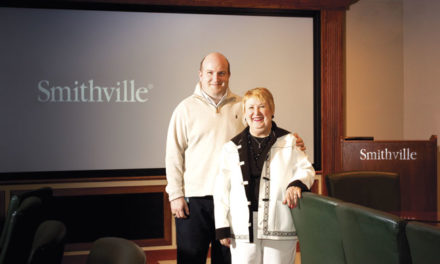BY KELLY KENDALL
Getting in on the ground floor of a solid new venture is a smart business tactic. It’s also one that has helped propel the online graduate-degree program of IU’s Kelley School of Business to a ranking of third best in the country, according U.S. News & World Report.
The long-running Kelley Direct online MBA program earned its spot among more than 200 similar offerings nationwide. This is the first time that U.S. News & World Report has ranked online business programs. Washington State University finished first in the rankings and Arizona State University second.
The Kelley School’s high ranking wasn’t exactly a shock, says Clinical Associate Professor Philip Powell, faculty chair of the Kelley Direct online MBA program. “We were the first business school in the Bloomberg top twenty to offer an online MBA—back in 1999,” he says. “For thirteen years, we’ve been learning how to teach online. For thirteen years, we’ve known you can teach online at a level that employers respect. We’re now able to move forward on education that is organic to the online learning experience, whereas our competitors are still learning.”
The MBA online program has soared in size from just 14 students in 1999 to about 1,000 this year, making it the largest graduate program in the school.
“Because we’ve been able to teach online for so long, we can do things that nobody else can,” says Powell. For instance, the program offers global leadership training, in which online students go abroad to consult in emerging markets. It also includes virtual consulting programs that teach students how to work in teams.
Some advantages remain the same as in the residential program: The faculty includes the same professors, and students have access to the school’s network of more than 95,000 alumni.
Yet the differences are key, says Powell. “You cannot recreate the traditional classroom in online learning—it’s like trying to think of a computer as a typewriter,” he says. “Kelley Direct is able to unshackle from the concept of the traditional classroom, allowing us to innovate in ways that other programs cannot.”











